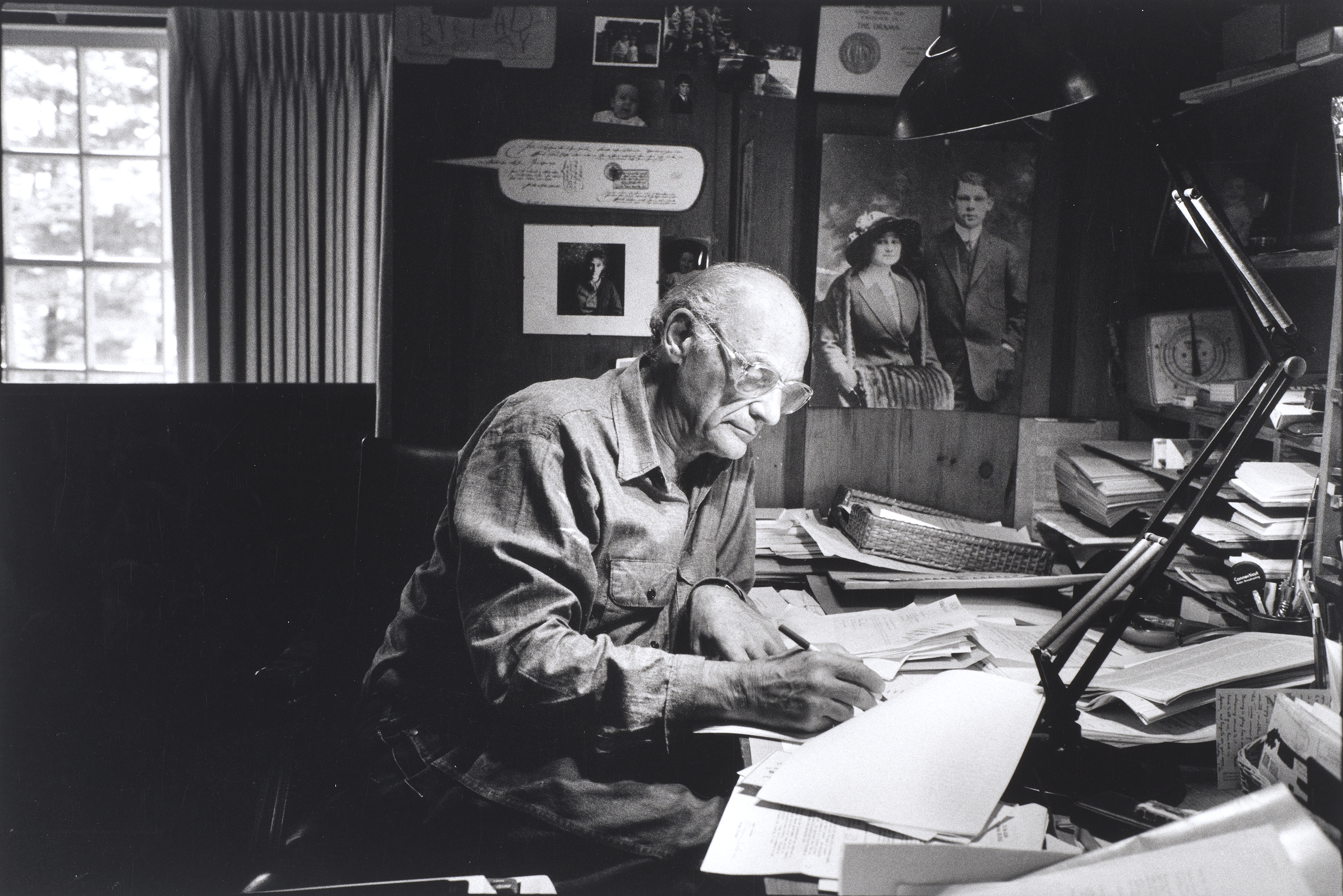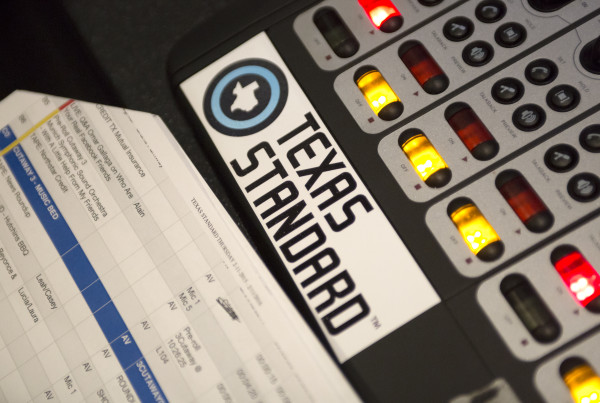Playwright Arthur Miller is probably best known for “Death of a Salesman” or “The Crucible.” The Pulitzer Prize-winning dramatist spent most of his life on the east coast. But when it came to manuscripts and working notes for his plays, Miller gave the first boxes of his papers to the Harry Ransom Center at the University of Texas at Austin, back in the 60s. Now, the research library and museum has acquired more of his archive.
Ransom Center Performing Arts Curator Eric Colleary says the archives Miller donated in the 1960s included evolving manuscripts, and notebooks containing stage directions and other instructions related to “Death of a Salesman.”
“Even in the course of these early manuscripts he was sending us in the 60s,” Colleary says, “you get a really beautiful sense of his process as a writer – how he’s shaping the language. And he’s really well-known for being the master of the American theatre.”
The Ransom Center’s track record for obtaining important archives is significant. Colleary says the archive of material provided by playwrights is particularly noteworthy. Archives include American, British, French and Irish collections.
Colleary says the existing archives provide a basis for making connections to the work of other artists. In addition to Miller, the Ransom Center holds archives from Tennessee Williams, Lillian Hellman, and Elmer Rice.
Colleary says Miller was enticed to donate his material to UT by Harry Ransom, a former president and chancellor of the university.
“He was an incredibly dynamic man who had a winning personality,” Colleary says. “This was a very new institution at the time. We were getting a reputation for having a strong vision for a major humanities research center in Texas that would collect not just things that were a hundred years old, but the archives of living writers.”
Hear more about the Arthur Miller archives in the player above.
Written by Shelly Brisbin.
















